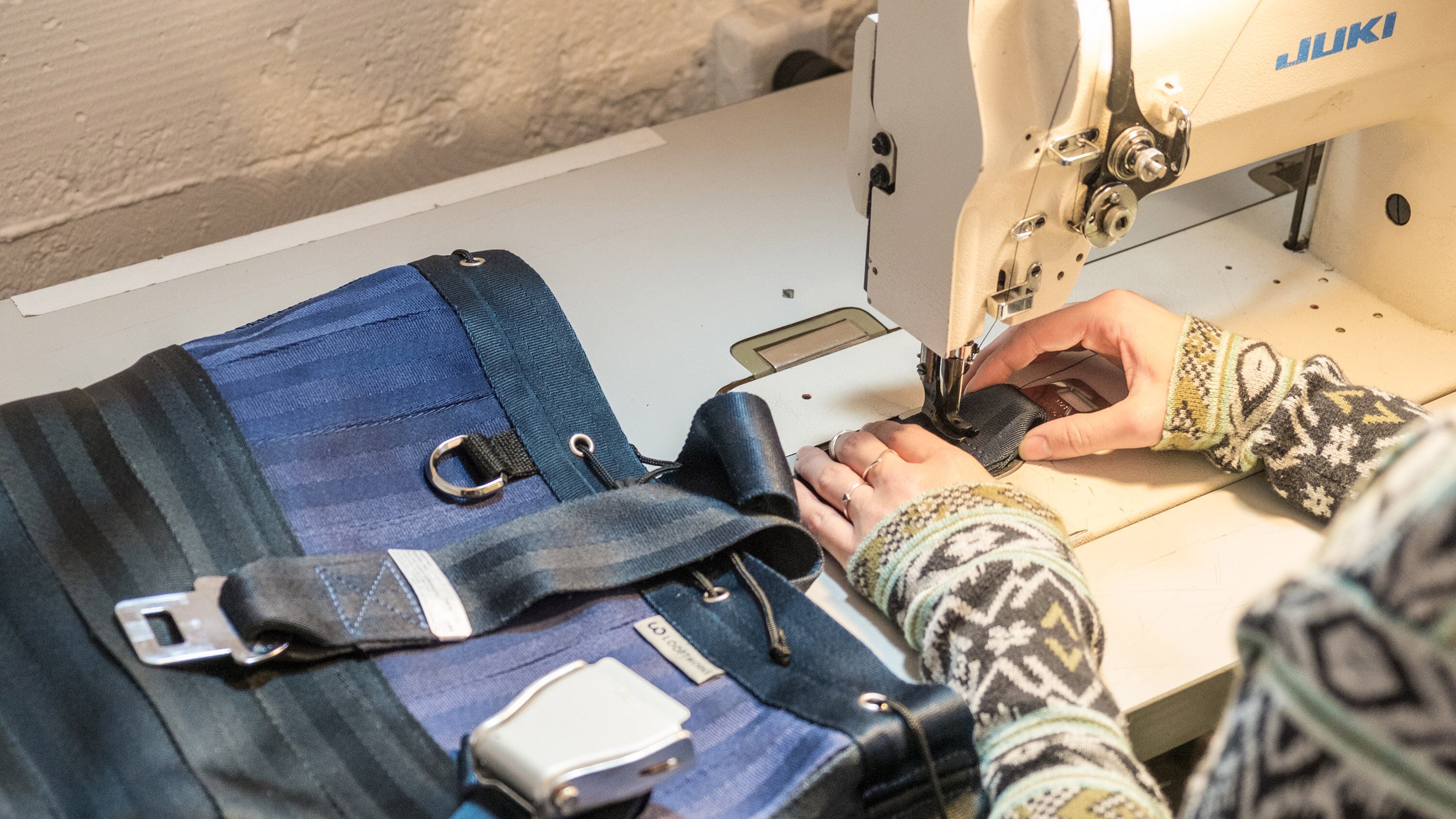Scott Hamlin wants the world to send him its unwanted fabric.
The founder of Looptworks (2410 SE 11th Ave., looptworks.com), the nearly 10-year-old company that takes material normally bound for trash bins or burn piles and turns it into everything from stylish purses to duffels to backpacks, relies on waste to make his business run, with the added benefit that it's a boon to the environment.
The textile industry produces tons of excess every single year—think company uniforms that are phased out for an updated look, or sports jerseys that become obsolete once an athlete moves to a new team. The tiniest alteration to a logo, change in sponsorship, or color swap can trigger a tsunami of fabric, which Looptworks hopes to intercept before it winds up in a landfill.

"We have a partnership with the entire NBA, where every time a player gets traded, they simply can't commercialize the jersey anymore. All those jerseys come back to Portland," says Hamlin. "We've come across a lot of Carmelo Anthony jerseys this season, and I laugh because they're from three different teams."
So far, Hamlin figures the company has collected close to 25 tons of clothing from the league alone, which is given a second life as everything from shirts and pillows to fanny packs.
It's not just retired sports jerseys getting repurposed. The team has turned fly-fishing waders from Patagonia into lunch kits. Southwest Airlines leather seat covers are now bucket bags. A swath of German merino wool once used as an architectural sound dampener was sewn together with Langlitz motorcycle jacket leather to create a purse that would fit in on the shelves at any high-end department store.


